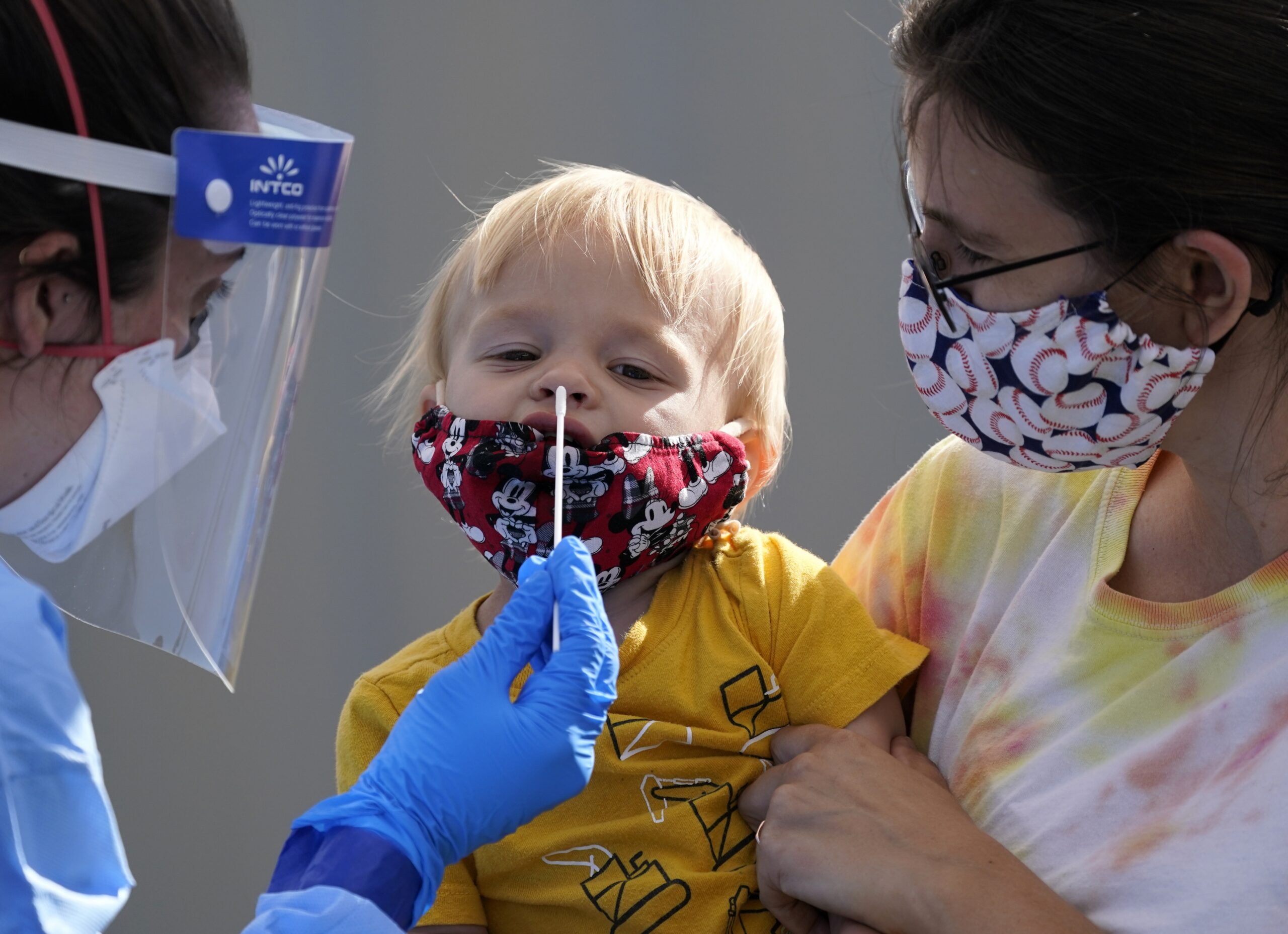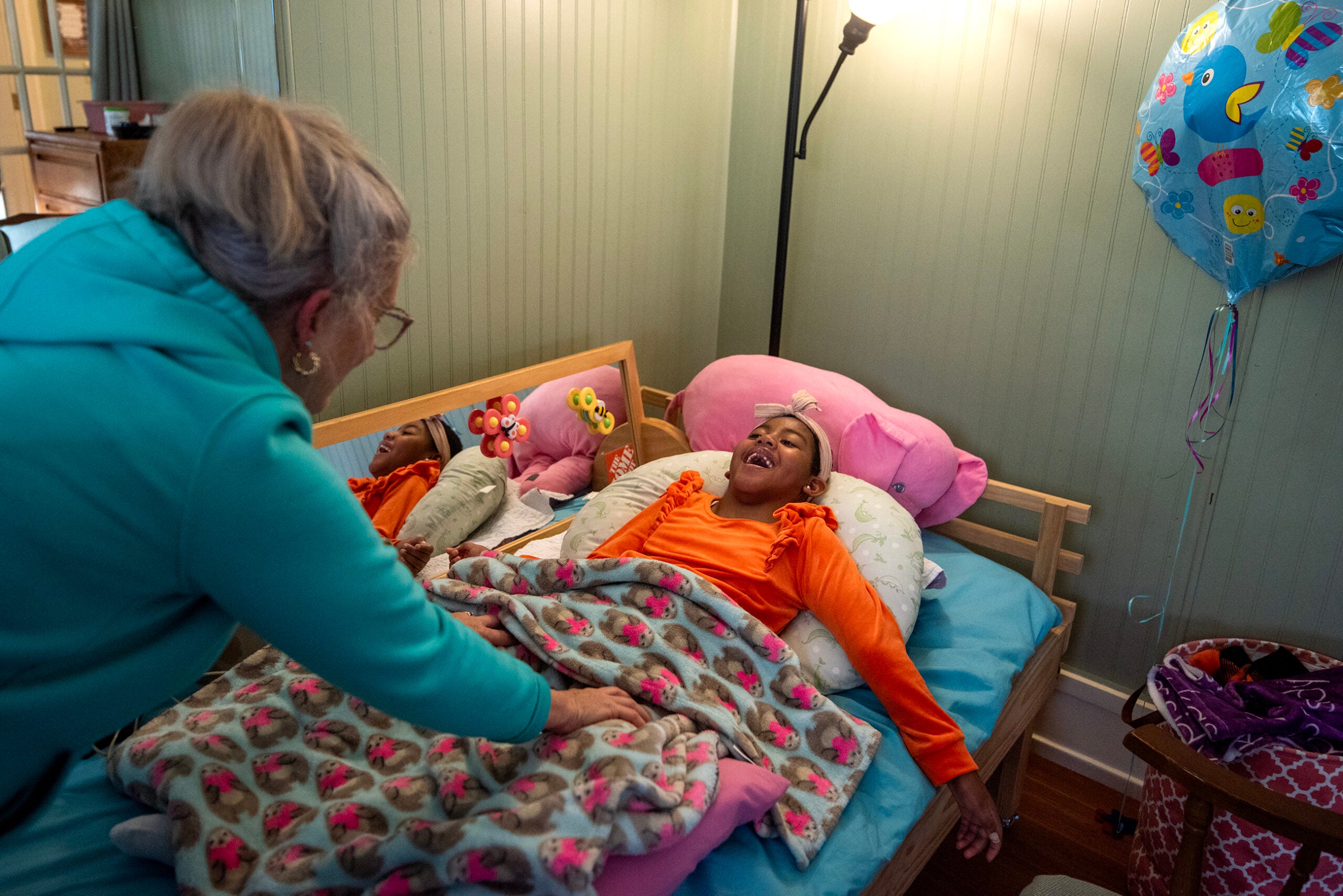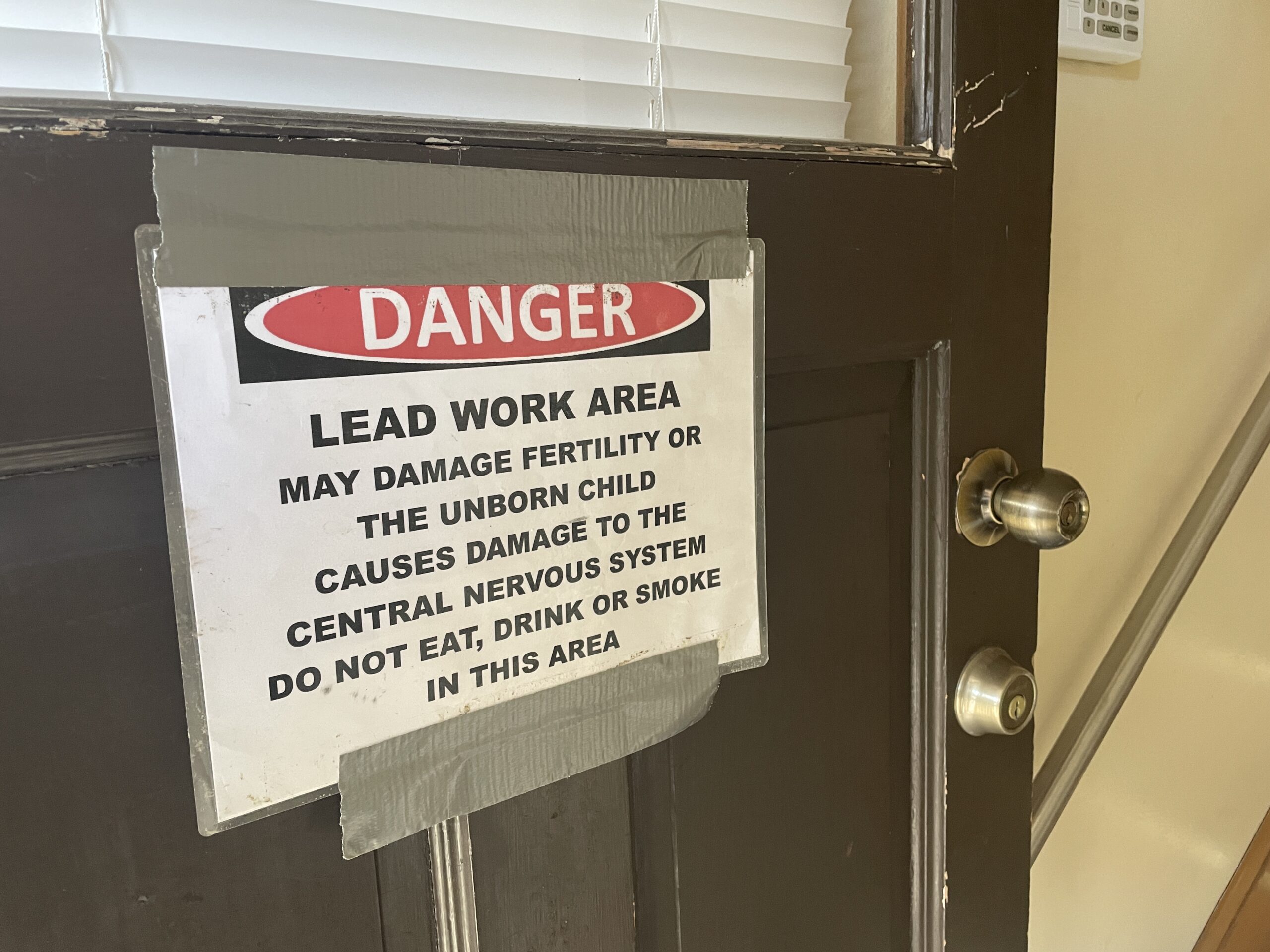As COVID-19 has surged around the state and country, many more people who have been exposed or are showing symptoms of the disease are looking for tests.
Pharmacies and some testing sites run by health departments are booked out days in advance. And doctors, nurses and hospital systems, overwhelmed by COVID-19 cases and other health emergencies, have limited capacity for testing.
At the same time, state officials are urging people to get tested if they’re symptomatic or exposed.
News with a little more humanity
WPR’s “Wisconsin Today” newsletter keeps you connected to the state you love without feeling overwhelmed. No paywall. No agenda. No corporate filter.
“Getting tested also continues to be an essential part of our response to this virus,” Gov. Tony Evers said on a call with reporters Thursday, when he announced insurers will be required to cover at-home rapid tests starting Saturday.
For children under 3 years old, the hunt for testing is even more complicated.
Pharmacy chains like CVS and Walgreens only test ages 3 and up.
The BinaxNOW at-home tests, approved for kids ages 2 and up, are expensive for those who can’t now get them covered by insurance, and they are flying off the shelves as soon as they’re stocked.
Some sites run by county health departments can swab younger children — for example, in Rock County, a Beloit site serves kids ages 12 months and up — but that may mean parents have to drive several towns away to get their kids tested, and even then, that leaves out kids under a year old.
Michelle Stokkers, who lives in the Dodge County town of Theresa, has two young sons, ages 2 and 5 months. Both are in day care. Her 2-year-old son was exposed to COVID-19 in his day care class in early December, which started a mad dash to find him a test — the day care requires kids to quarantine for three to five days and get a negative test result before they can return.
“I wasn’t sure the at-home tests were even applicable to his age, but luckily, because he is 2 and a half, they were applicable to his age,” she said. “However, we couldn’t find any at-home tests. I was attempting to work from home and scan every app and every store to see who had the at-home tests available.”
She first tried the Froedtert Hospital system, where the family had gotten her son tested after exposures in 2020, but it requires patients to submit an online questionnaire that hospital staff will then review to determine whether a test is needed, and she wasn’t getting an answer back saying he was approved to be tested. On the last day of his quarantine, they finally heard back from the Froedtert West Bend and got his test, and in her frantic searching, she eventually found a couple boxes of at-home tests at a Walmart, which she’s keeping on hand for his next exposure.
If her younger son is exposed, they can’t use the at-home tests, so Stokkers is crossing her fingers she’ll be able to get him in at Froedtert.
Stokkers started work in November as a buyer in a manufacturing facility after taking a year off work to stay home with her oldest son while pregnant. She doesn’t have sick leave and vacation time banked to stay home with her kids if they have to quarantine for an extended period of time.
While Stokkers’ day care accepts a negative at-home rapid test as proof that kids can safely return, other day cares require a PCR test, which means families can’t prepare for possible exposure by keeping tests on hand. Rapid tests results are ready within 15 minutes, while PCR tests, which are better at detecting lower levels of the virus, can take days to return results.
Day cares can participate in a free state testing program that lets providers administer antigen and PCR tests, but the state Department of Health Services didn’t provide data to Wisconsin Public Radio on how many providers are using that program.
Kids under age 5 are not eligible to be vaccinated, and hospitalizations for kids with COVID-19 reached an all-time high this month.
For kids who are symptomatic and surrounded by family members who are positive, Wisconsin’s chief medical officer Ryan Westergaard said families should operate under the assumption that the kids are positive, too, even without a test. If they have COVID-like symptoms but might not have been exposed to the virus, he said the state does recommend testing, as well as other options.
“I would contact their pediatrician first to get advice on what to do, not assume that it’s COVID or assume that COVID testing is the only thing that’s needed,” he said. “Not every single person under every circumstance needs a test, if we can evaluate a household setting, make sure people are not sick and give people the right advice.”
According to an analysis from the Kaiser Family Foundation, only 55 percent of Wisconsin children had a “medical home” in 2020, meaning they have a personal doctor or nurse, a usual source for care, and family-centered care. The percentage of kids ages 11 and under getting care in a well-functioning system in 2019 to 2020, meaning “the family feels like a partner in their child’s care, child has a medical home, child receives early screening, child has adequate insurance, and child has no unmet need or barriers to access services” was even lower, at 22 percent.
DHS said in an email that the agency is working on increasing kids’ access to testing, including for kids under age 3.
“Our goal, certainly, is to make tests available to all people who need them, and people should use the variety of options available to get tested in the communities where they are,” said Westergaard.
Wisconsin Public Radio, © Copyright 2025, Board of Regents of the University of Wisconsin System and Wisconsin Educational Communications Board.







